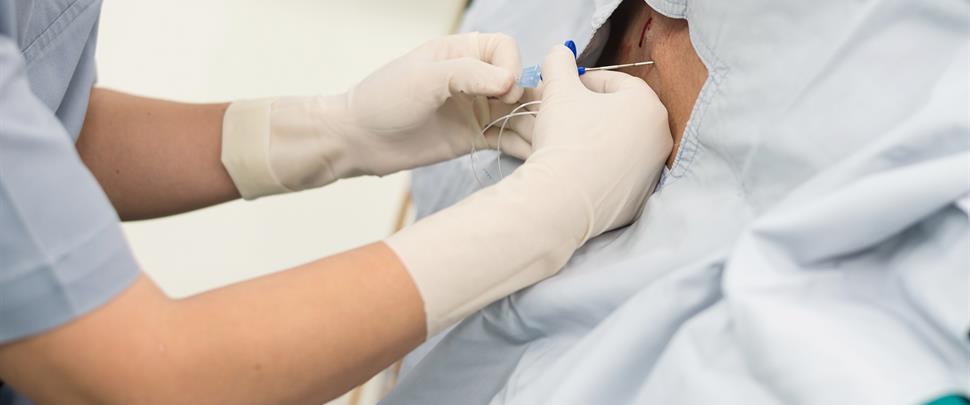PRE ANAESTHETIC CHECKUP AND ITS IMPORTANCE

Dr. Sandip Kumar Sarkar
Anaesthesiologist
Institute of Human Reproduction
During a visit to a hospital, there can often be anxiety in a patient. If the doctor advises a surgery or an interventional procedure as a treatment option, most of the patients would worry about what to expect. Now a day’s availability of safe and quality anaesthesia services makes the experience of surgery a pleasant one for any patient. Anaesthesia services are an integral part of the present health care system.
Anaesthesia services are provided to you in case you have to undergo surgery and an interventional procedure. Any patient undergoing surgery can be given anaesthesia in any one of the following ways:
- General Anaesthesia (patient is put in a state of deep sleep during the procedure and does not respond to any external stimuli, including pain)
- Regional Anaesthesia (a part of body where the surgery is to be performed is made senseless , especially useful in limb surgeries and caesarean sections)
- Monitored Anaesthesia Care/ Procedural Sedation: this is used for procedures like Office Hysteroscopy, Endoscopy, ERCP, Colonoscopy etc. where general anaesthesia is not required or may not be possible and but anaesthetist is present to monitor and ensure maximum comfort possible.

Planning for Surgery
Once your surgeon advises surgery, you will be asked to undergo pre-anaesthetic evaluation or pre-anaesthesia check-up (PAC)
How is Pre Anaesthesia Check-up done?
- You will be directed to the pre-anaesthesiacheck-up (PAC), which may be done in PAC OPD or OT waiting area.
- An anaesthetist will be available in PAC room. He/ She will enquire about your past and existing medical conditions, drug history,family history past anaesthetic history etc.
- A general physical examination will be performed followed by Airway examination and examination of the back (spine). He/She will check your vital signs and document your medical problems, the treatment which you are currently on and enquire about allergies. It is important to share your past and present medical history, medication if any with your anaesthetist.
- If any of the medical problems require evaluation or optimisation of the treatment you will be advised to go to the concerned specialist in the hospital.
- You will be advised basic laboratory and radiological investigation if they have not been done already. These will be relevant to the kind of surgery you are being planned for.
- The plan for anaesthesia will be discussed with you and the surgery scheduled along with the coexisting medical conditions. The sole aim is your safety and comfort during the surgery. This plan will also take care of your postoperative pain management options. You will also be informed about any postoperative requirement for a stay in an Intensive Care Unit or a High Dependency Unit.
- You will be advised about the risk stratification for the surgery you are being planned for and about the informed consent form.
- It is advisable to keep the PAC form /document copy safe with you for future anaesthesia reference
DOs AND DON’Ts Before Surgery
- EATING AND DRINKING: The basic requirement before undergoing any kind of anaesthesia is to be empty stomach for six to eight hours before having solids and two hours before the taking the small amount of water intake. Babies can be given breast milk up to four hours prior to surgery and top feed till six hours prior to surgery. There are special eating/diet instructions for endoscopy, colonoscopy, and some intestinal surgeries. Please follow the instructions given to you by your Anaesthetist.
- BATH AND SHAVE: You must take a shower or bath both the night before and the morning of surgery. Do not shave the area you will be operated on. The nurses will do that at the hospital if needed. Scrub your fingernails with a brush. If you have a beard, moustache, or other facial hair, it is a good idea to trim or shave it prior to surgery. A beard or other facial hair interferes with the fitting of your oxygen mask. Do not forget to brush your teeth too.
- SMOKING: It is strongly encouraged that you stop smoking and the use of tobacco once you have decided to undergo surgery. This will reduce your risk of respiratory and cardiac complications after your operation. Cessation of smoking goes a long way towards a faster and uneventful recovery.
- BLOOD THINNERS: If you are on any kind of blood thinning medication like aspirin, clopidogrel, etc. kindly inform the anaesthetist involved in your PAC, as these medications may have to be stopped or their schedule may require adjustment.
- NAIL POLISH: A nail polish should be removed before your arrival for surgery. Even though tips, wraps, gels. etc., are expensive; however, these products must be removed from at least one finger on each hand (preferably the index or middle finger). This will be used to accurately monitor your oxygen level during a surgery.
- HEARING AIDS AND CONTACT LENSES: Patients who rely on hearing aids should wear them to the hospital on the day of surgery so that you can hear and understand everything. Hospital personnel needs to communicate with you. Wear glasses when possible. If contact lenses must be worn, bring your lens case and solution. If glasses are worn, bring a case for them.
- DENTURES: You will be asked to remove all non-permanent dental work before your surgery.
- MEDICINES: Medicines like BP medicines, thyroid medication,allergy medication, antibiotics if any areusually allowed to be continued on the day of surgery. Diabetic medication and insulin, blood thinners areusually withhold on day of surgery since patient has to remain empty stomach.

